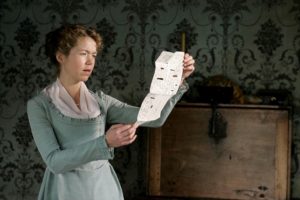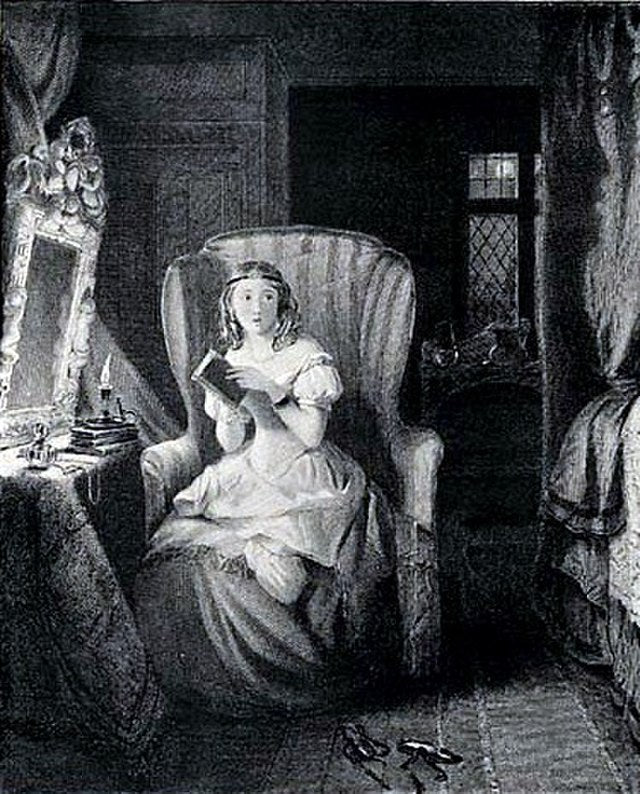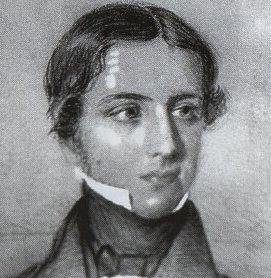Cassandra Austen, Charlotte Brontë, Queen Victoria and a Destruction of Letters
What did Cassandra Austen have in common with Charlotte Brontë and one of Queen Victoria’s daughters?

Whatever possessed them to do it? This can be a question that springs to mind when reading about the deliberate destruction of material left behind after the death of a famous person. It doesn’t matter from what sphere of the arts the deceased came, whether the artist in question was a singer, musician, poet, painter or writer: anger is raised that part (or all) of their unreleased material has been “disposed of” or censored in some way by a third party, whether relative, business associate, or other.
We know that after Jane Austen’s death, Cassandra Austen, her beloved older sister, was no exception to destruction or censorship of this kind and quantities of Jane’s letters may have been destroyed. Certainly many were censored by having contentious comments removed. As the two sisters were often apart, visiting different members of the large Austen family or their connections, a considerable number of letters would have passed between the two. Some Jane Austen commentators have vilified Cassandra for what they deem acts of wanton vandalism, and have sometimes concluded these acts were probably inspired by jealousy of her talented younger sister. But is this really the case? Is this vilification fair? Two other famous women who have faced charges of wilful censoring and destroying much of a deceased relative’s work are novelist Charlotte Brontë and Princess Beatrice, youngest daughter of Queen Victoria. 

Charlotte Brontë is widely believed to have destroyed the draft of a second novel written by her sister, Emily, although it is unclear what stage any manuscript second novel had reached when Emily died, in late 1848. The accusation rests on Charlotte’s known opinion of Emily’s first work “Wuthering Heights“. She once wrote of it as “….a rude and a strange production”, and mentioned its’ “….harshly manifested passions”, so it seems quite possible that she feared this second book would be even more controversial than the first. A published author herself at the time of Emily’s death and understandably anxious to continue to sell her work to the public, she may have felt that any impropriety would reflect badly on her own reputation.
 Princess Beatrice, youngest daughter of Queen Victoria, was the recipient of a sacred charge left to her by her mother, compelling her to go through Victoria’s voluminous diaries, kept since childhood, and to expunge anything considered unfit for eyes other than those of the Queen and her daughter. It appears that Beatrice had received strict instructions on exactly what she was to censor, and the instructions were faithfully followed and carried out over a period of many years.
Princess Beatrice, youngest daughter of Queen Victoria, was the recipient of a sacred charge left to her by her mother, compelling her to go through Victoria’s voluminous diaries, kept since childhood, and to expunge anything considered unfit for eyes other than those of the Queen and her daughter. It appears that Beatrice had received strict instructions on exactly what she was to censor, and the instructions were faithfully followed and carried out over a period of many years.We who come later may criticise the decisions of Cassandra, Charlotte and Beatrice, but we need to try to put ourselves in their situation: not long after Emily’s death in 1848, Charlotte Brontë became the last surviving child of the Reverend Patrick Brontë and at the time of Emily’s death, her widowed father was in his seventies. By 19th century standards, it was quite likely that within the next 5 years he would die, leaving her completely alone with no blood relatives apart from distant cousins in Cornwall, on whom she had no claims. As her father was a clergyman from a humble family background, little money would be forthcoming from his estate, and Charlotte hoped she could continue to earn her own living by her writing.The success of her writing depended on the public’s reception of her work and their view of her as a novelist. Can we blame her for taking the long view and being anxious to maintain her reputation and that of her sisters’ work?
There is another aspect that also warrants consideration: the temperament of Emily herself. Always a fiercely private person, and protective of her writing against outside eyes until she deemed it right to be revealed, it was perhaps Emily herself who exacted a solemn promise from Charlotte that on the event of her death, Charlotte should ensure that any remaining manuscripts were destroyed before there was any chance that they might come to public attention. Were these actions partly motivated by self-interest? Perhaps we’ll never know, but I think if they were, we should be tolerant, considering the realities of life for a woman in the 19th and early 20th centuries, including the need to preserve an unblemished reputation. There was also the feeling that the deceased would not be able to answer any criticisms that arose as a result of further material coming under public gaze.

Princess Beatrice, always the shyest, most deferential and malleable of Victoria’s five daughters and the one who, even after her marriage, still lived in her mother’s home, is likely to have been deliberately selected by Victoria to access her private diaries and follow her wishes to the letter. Obedience was bred into Beatrice, and as an archetypal Victorian lady and Princess of Great Britain to boot, it would not have occurred to her to refute what would be looked on as a sacred task and her mother’s final wish. The fact that she was leaving large ‘holes’ that later historians would attempt to fill in probably did not occur to her, nor was it likely to have made much difference if it had, in the face of her mother’s royal command.
It is quite possible that Cassandra Austen was in a similar position to that of Princess Beatrice, albeit 84 years earlier. As Jane’s adored only sister and confidante, Cassandra was the recipient of all Jane’s confidences, whether written or spoken, and was the usual first audience for her manuscripts. With Jane’s talent for lively social commentary about family, friends and acquaintances (and her sometimes forthright and acerbic comment at that), Cassandra may have wished to avoid anything that might later taint the memory of her adored sister or cause upset within the family and we remember how ‘prickly’ her sister-in-law, James Austen’s second wife, Mary (nee Lloyd) could be. Within the family circle of brothers, sisters-in-law, nephews and nieces there was plenty of material for observation, comment and the forthright views Jane was never reluctant to express in letters to her sister (their brother Henry’s failed banking venture, which occurred about 3 years before Jane’s death, and which necessitated yet another change of career for him, would have caused the whole Austen family much grief and surely much comment).
Dearly as she loved her family, Jane is likely to have wanted to spare them any unnecessary pain after her death. Fully aware that she was dying, Jane may have herself tasked her sister with undertaking the melancholy duty following her death, and exacted her promise that this would be done. To inflict charges of wanton destruction and jealousy on Cassandra – or Charlotte Brontë and Princess Beatrice - without any apparent evidence to support the charges is, I believe, too harsh and simply unfounded. What we can say about Jane Austen is the same as can be said about Emily Brontë and Queen Victoria: we can only speculate about possible evidence of uninhibited comment on joy, passion, unhappiness, disappointment and so on, which has been denied to posterity by the absence of part of their legacy.




5 comments
My husband and I burned the letters we exchanged when he was serving in the armed forces and we wrote to each other every day. I so regret that since his death, as I have little or no examples even of his hand-writing. Even so, I wouldn’t want anyone else to read our letters.
angelasouthern1@gmail.com
This article makes no mention of Charlotte Bronte’s censorship and rewriting of her sister Anne’s novel the Tenant of Wildfell Hall. So successful was the that all these decades later it is still virtually impossible to reason the original excellent version. Anne in her novels and poetry far outshone Charlotte.
Chris Williams
It’s a shame that the very letters that are usually destroyed are the very ones that most probably contained the most interesting, scandalous and passionate responses. How much more would we have found out about Jane’s loves and loathes? However I do understand at the time that what was written was thought to be too ‘delicate’ for anyone to read according to Casandra and perhaps Jane herself, I shall be destroying some of my written things too. I’m pretty sure though that what ever was destroyed would not have made us love Jane Austen less.
charlotte Bruce
We can only ever speculate as to the why but I would agree with the author. After all, we don’t ‘own’ these people and while it’s great to know everything about our heroes, they are entitled to their privacy, whether dead or alive.
Anonymous
Very interesting article. But not only some of Jane’s letters appear to have been destroyed by Cassandra but all of those written to Jane by her cousin Eliza de Feuillide who later married Jane’s brother and her cousin Henry. And I don’t think there are any surviving letters written to Eliza. Were these destroyed by Henry? Fortunately some of Eliza’s letters written to Phylly Walter, a more distant cousin, have survived and a few of these mention the court of Marie Antoinette. Eliza was a very well educated woman, fluent in French, and her letters sparkle with wit and humour.
Anonymous
Leave a comment
This site is protected by hCaptcha and the hCaptcha Privacy Policy and Terms of Service apply.